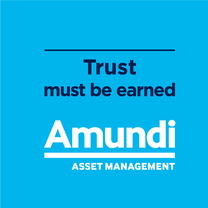Newsroom
Amundi Cross Asset Investment Strategy - September 2018
United Kingdom, September 13, 2018

10 years from Lehman: reality check
The collapse of Lehman Brothers 10 years ago marked the beginning of the 2008 financial crisis. The legacy of the crisis reveals to us a series of paradoxes, with consequences for both the economy and financial markets.
1. The missed deleveraging: If the pace of debt accumulation has slowed down, deleveraging in absolute terms has hardly happened at all post crisis. The prospect of higher rates and the exhaustion of the cyclical upswing open up questions about debt sustainability. Assessing areas of vulnerabilities that could translate into idiosyncratic risks will be key to preventing capital impairment.
2. The two sides of liquidity: Despite the macro excess of liquidity in the balance sheets of Central Banks (CB), we are facing a micro deterioration of market liquidity due to post-crisis regulations. The challenge for asset managers is to implement strategies to deal with this liquidity paradox.
3. A medicine with uncertain collateral effects: The response to the crisis was a massive (cyclical) stimulation of growth, mainly through monetary policy, then followed by the fiscal arm – even in the Eurozone. But the nature of the crisis and its genesis in the credit cycle significantly prolonged the healing process. New imbalances emerged in the form of asset price inflation. Unless some form of productivity shock materialises, in the long term markets will tend to readjust to their fundamentals (for example, equity markets to return to earnings growth) and lower returns.
4. Inequalities and instability have increased, not decreased: With the recovery involving the financial sphere rather than the real world (asset inflation replacing goods and wage inflation), and the widening of inequalities, the support for populist parties rose in many countries. In addition, the increased importance of China as a global political and economic player has added further complexity to the whole picture. Protectionism is another consequence of the more inward-looking political attitude. The globalisation theme has not run its course, but investors must assess powerful shifts in the structure of global growth towards more “domestic” engines via active global approaches.
With a short-term perspective, the economic slowdown we see ahead is likely to reveal sets of risks well beyond the classic ones (stronger growth leading to higher inflation and higher rates), such as cracks in the most imbalanced situations, political risk tariffs/uncertainties regarding US policy action) on the macro side, and liquidity and positioning on the market side. Risk-off sentiment may emerge, triggered by idiosyncratic situations (Turkey and Italy as the most recent examples) reviving the appeal of the “Western core”. Core assets and core rates should receive some support; in equity we should expect to see a rotation of styles versus quality and value. Peripheral bonds and emerging markets could suffer in the short term, however, as the threat of much higher rates and a much stronger dollar are largely behind us, this general repricing should be seen as an entry point (excluding idiosyncratic situations) for long-term investors.
Experts
Vincent has been Group Chief Investment Officer since February 2022. Previous to that, he was the Group Deputy CIO of Amundi since 2015. He is a member of the Globa[...]
Read moreMonica Defend, Head of Amundi Investment Institute. Monica is Head of the Amundi Investment Institute, which was created in February 2022, and a member of Amundi's Exe[...]
Read moreAbout Amundi
About Amundi
Amundi, the leading European asset manager, ranking among the top 10 global players[1], offers its 100 million clients - retail, institutional and corporate - a complete range of savings and investment solutions in active and passive management, in traditional or real assets. This offering is enhanced with IT tools and services to cover the entire savings value chain. A subsidiary of the Crédit Agricole group and listed on the stock exchange, Amundi currently manages more than €2.3 trillion of assets[2].
With its six international investment hubs[3], financial and extra-financial research capabilities and long-standing commitment to responsible investment, Amundi is a key player in the asset management landscape.
Amundi clients benefit from the expertise and advice of 5,600 employees in 35 countries.
Amundi, a trusted partner, working every day in the interest of its clients and society
Footnotes
- ^ [1] Source: IPE "Top 500 Asset Managers" published in June 2024 based on assets under management as of 31/12/2023
- ^ [2] Amundi data as at 31/03/2025
- ^ [3] Paris, London, Dublin, Milan, Tokyo and San Antonio (via our strategic partnership with Victory Capital)
Footnotes





